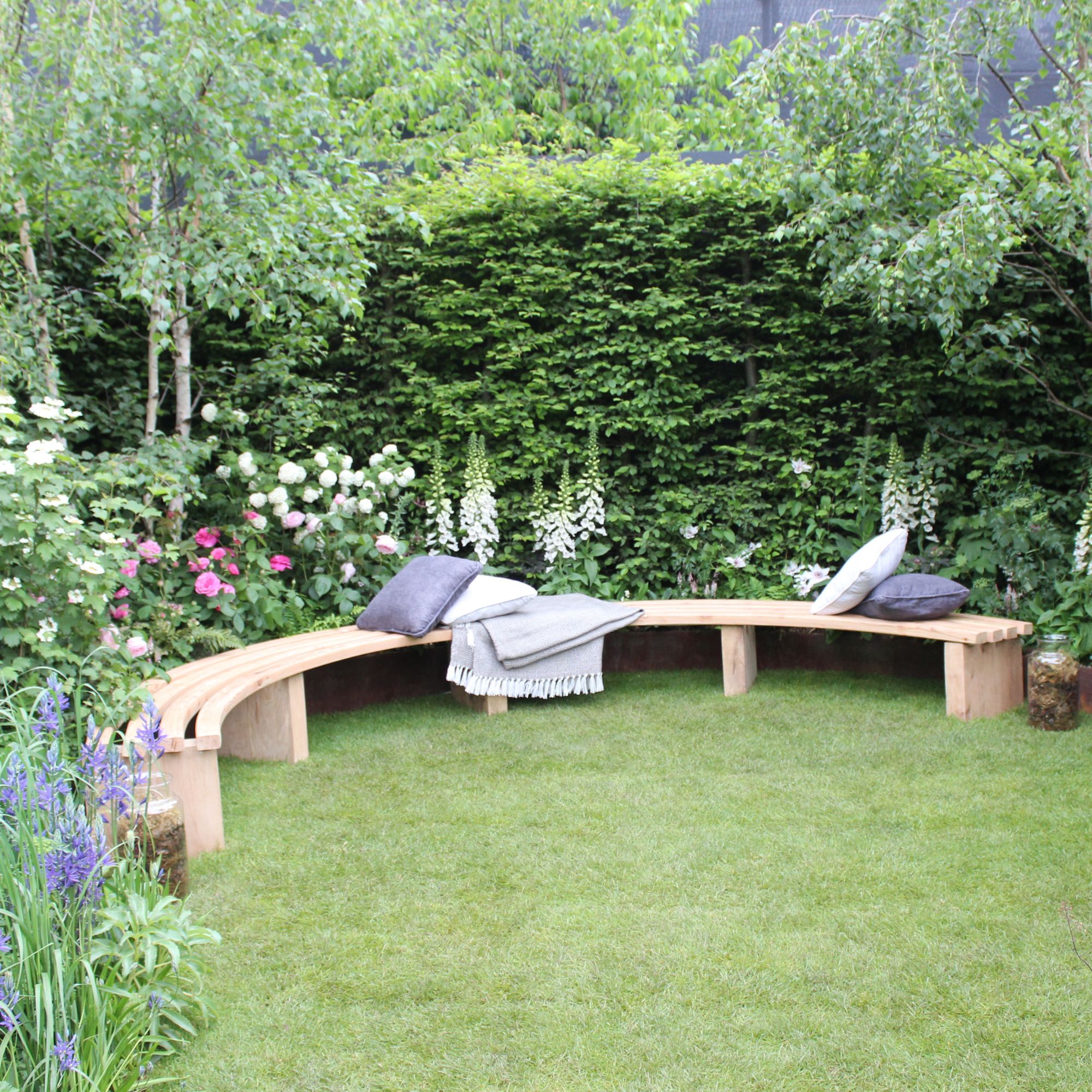
Any keen gardener will tell you that as well as many gardening benefits such as exercise, stress management and rewarding fulfilments of outdoor beauty, there are a few gardening jobs that are instant downers. One such chore begs the question, how to keep weeds out of flower beds?
Weeding a garden can seem like a never-ending task. No sooner have you spent an exhausting weekend pulling the dominators out of your borders and beds, they are back spreading corruption amongst your beautiful flower bed ideas.
But, why is it you rarely see a weed at The Chelsea Flower Show or a National Trust Gardens curated by landscaping professionals? So, we asked the gardening experts to let us in on their secrets for how to get rid of weeds in flower beds. Here's what they said.
How to keep weeds out of flower beds
When considering garden weed control there are a few garden mistakes to avoid so it's important to approach garden weeding with caution.
Yes, you want to know how to kill weeds but you certainly do not want to kill plants you've spent time and money perfecting as well.
Therefore, prevention and regular maintenance is the key to keeping weeds out of your flowerbeds and these are the best ways to do it.
What you'll need
Make quick work of pulling out weeds with this simple weed puller that will pull weeds out at the roots.
Our team is a huge fan of this handy tool for tackling stubborn weeds when preparing a flower bed.
If you are looking for a natural weedkill you can kill weeds with baking soda, just be careful to avoid your other plants.
1. Prepare the soil
The term 'it's all in the preparation' rings true when learning how to get weeds out of flower beds. It pays to plan for emerging weed threats by preparing and filtering the soil before planting your chosen bedding plants for shade or garden border blooms that enjoy full sun.
A top garden job to do in April is to enrich your soil, so combine this with a good weed filter too. Dig over the flowerbed to remove any left-over dead plants and all weeds plus their roots. Pull a rake over the surface of the soil until it resembles fine sand.

2. Plant strategically
When planting raised beds and garden borders fill your beds with tightly spaced plants to squeeze out any weed growth.
'Make sure to plant thickly to fill up your bed fully and help shade out the weeds. Ensure that you also mulch well after planting and try not to disturb the soil as much as possible,' confirms Alisdair Moore, Head Gardener at The Lost Gardens of Haligan.
Mulch? you say. We'll come to that.
3. Consider companion planting
As well as packing out flower beds, it pays to fill them with a carefully selected planting scheme species. Companion planting is a clever gardening hack to rid beds of lots of pests including weeds.
Choose plants that are friends to filter out the faux by filling up empty patches. Or, mix tall and short plants to utilise the space.
'My favourite is Vinca minor ‘Atropurpurea’ which has bold purple flowers that burst out like little surprises early in the year. This evergreen plant will spread slowly through the bed creating an evergreen mat of underplanting, that will eventually crowd out the weeds and stop them from taking root,' explains Harriet Worsley of Worsley Design & Consultancy .
'It takes time to establish a dense spread, and it can be a little rampant, but it’s perfect if you have plants such as the tall Hydrangea arborescens ‘Annabelle’.'
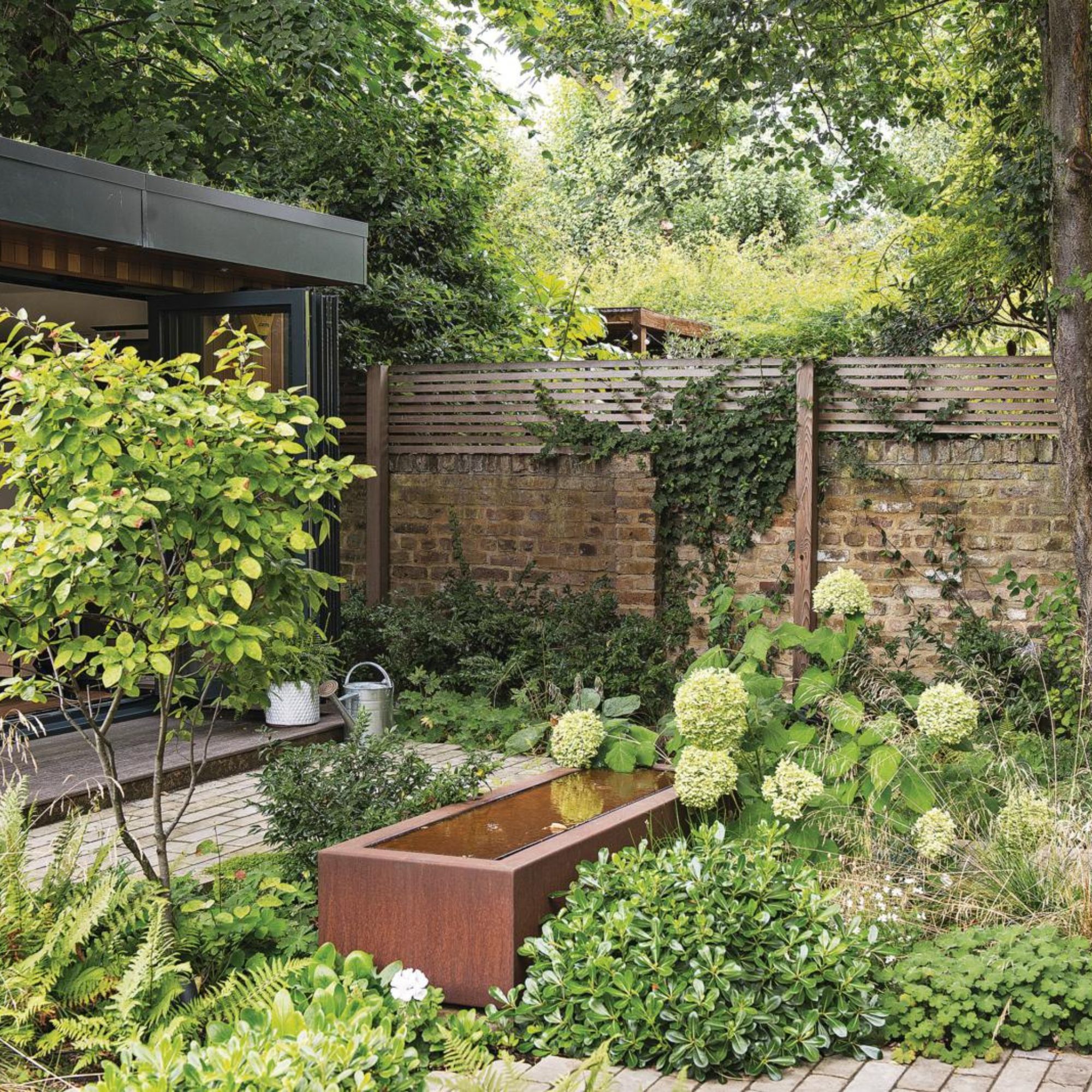
4. Mulch the flowerbeds
Did you ask what is mulching? Mulches or mulching is a gardening term that means covering soil with loose covering such as lawn cuttings, hot compost or garden bark. It has many benefits, one being to prevent weeds.
'Mulching is a brilliant weed suppressant – whether you mulch with your own compost or end up buying some mulch in,' explains Rosie Fyles, Chiswick House and Garden Trust.
Whatever type of mulch you use be sure that it is weed-free in the first instance.
'Thick mulches are extremely effective at inhibiting germinating weeds, but as most of us do ‘cold composting’ – just gradually adding bits of waste to a cold heap – our compost is full of viable weed seeds so it doesn’t work. Recycled green waste from local council collections is hot-composted, making it sterile, weed-free and perfect for the job,' advises Annelise Brilli, a horticultural expert at Thompson & Morgan.
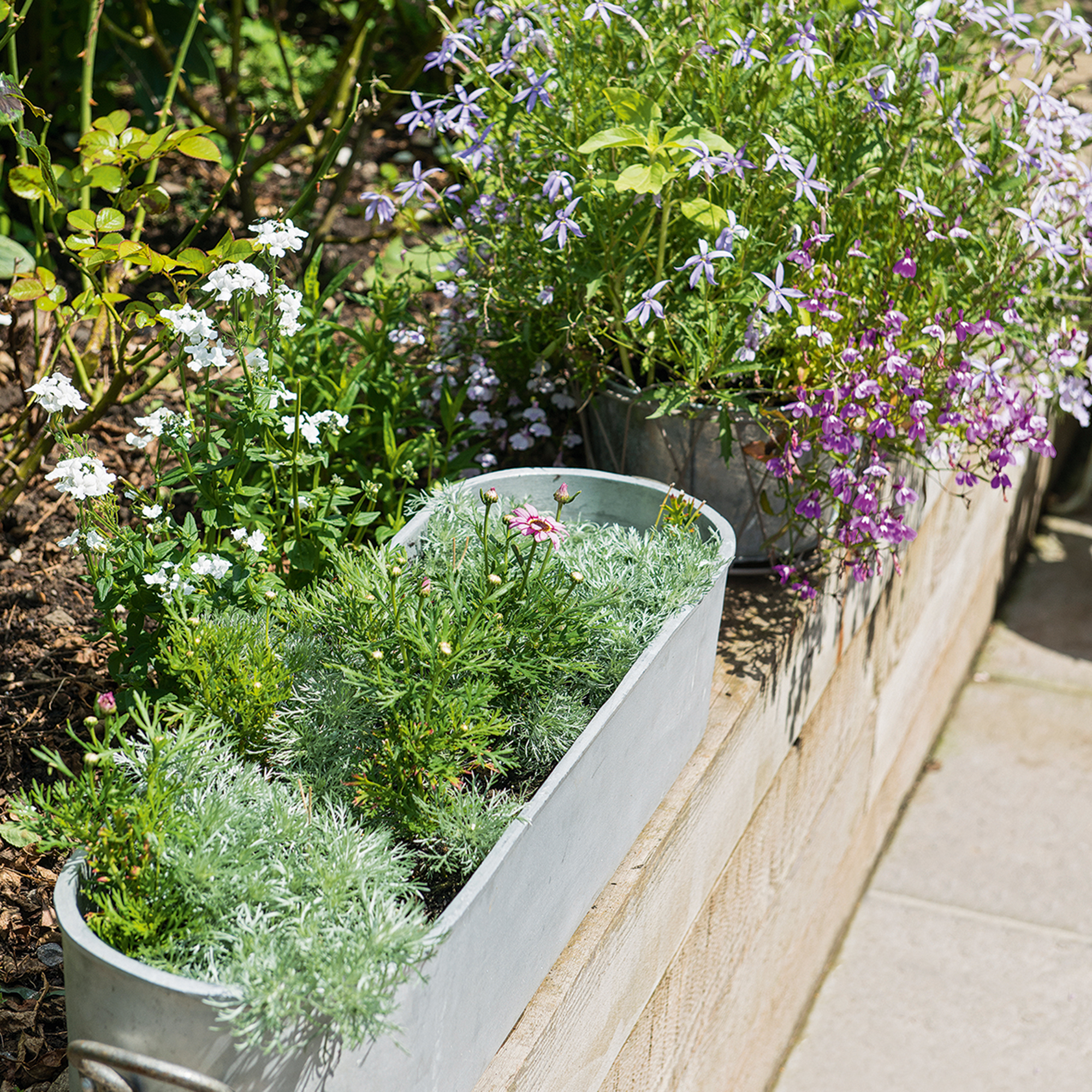
5. Select natural weed killer
When it comes to knowing how to get rid of weeds from flowerbeds it's wise to keep chemical weed killer well away as the synthetics will be just as harmful to your cherished plants and soil.
'My viewpoint on removing weeds is rather than using chemicals and negatively impacting your soil's biodiversity, it's best to go with a more ecologically friendly method, if possible,' agrees Jamie Shipley, Managing Director of Hedges Direct.
Several natural weed killers are eco-friendly and can often be found in your kitchen cupboard, such as baking soda, white vinegar and in some circumstances, if used correctly, table salt.
'Instead of using a chemical weed killer, lemon, vinegar or rock salt can be used to dry weeds out and kill them through dehydration.'
'These natural herbicides are "non-targeted", meaning they have the potential to harm all plants, not just weeds and will stop any plants from growing in that space for a long time so make sure to keep them well away from any other flower beds in your garden. I recommend only using these methods in paved areas to protect your other plants,' adds Jamie.
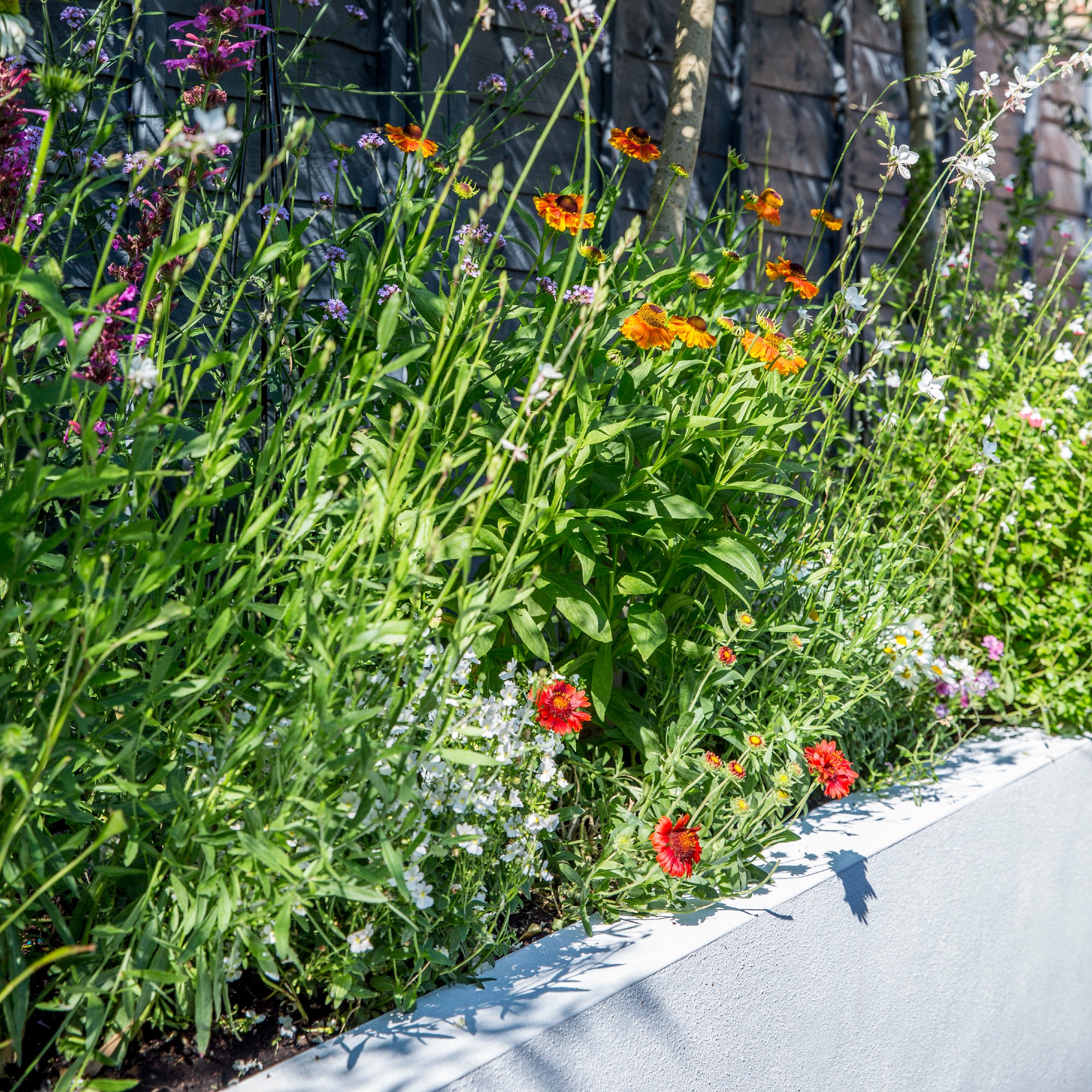
6. Focus on old fashioned graft
Most experts agree that the only way to successfully keep weeds out of flower beds is to accept that donning gardening gloves and getting down in the dirt with a weed trowel is the most effective and earth-friendly method to de-weeding your outdoor space.
'Unfortunately having a healthy garden means attracting weeds as well. So, oftentimes the best solution to this is just to hand-pull weeds when you see them. Make sure you're getting roots and all to prevent them from simply re-growing,' says Ryan Farley, CEO of LawnStarter.
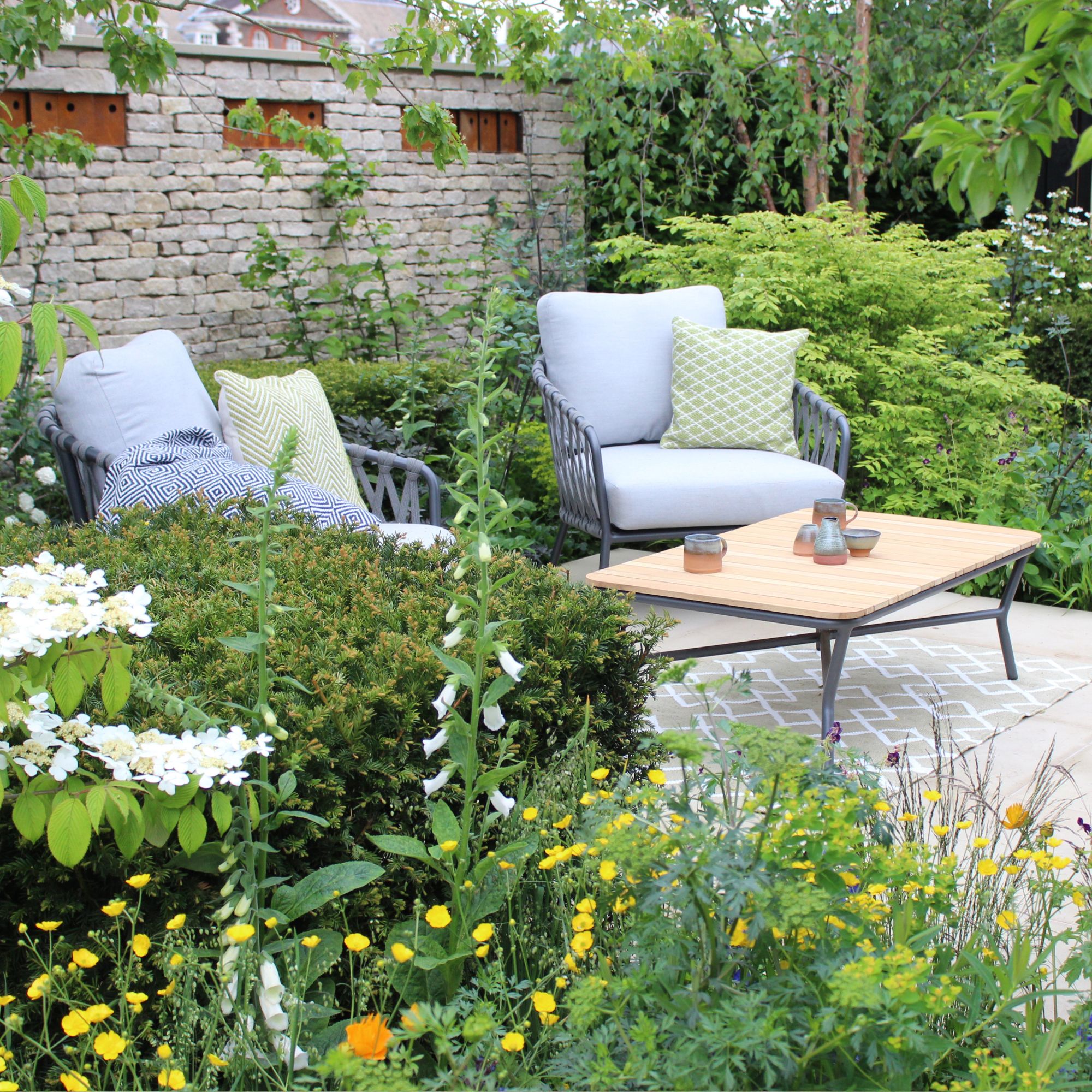
FAQs
What are the worst weeds for flowerbeds?
Persistent weeds to look for and keep a check on are bindweed, ground elder and mare’s tail.
'Weeds will grow quickly during the summer so it’s important to stay on top of weeding to prevent them from setting seeds for later in the season and next year. Persistent, perennial weeds such as bindweed, ground elder and mare’s tail should be pulled or hoed regularly. This will prevent them from being able to photosynthesise and gradually knock them back until they no longer return,' says Jamie Shipley.
When's the best time to weed flowerbeds?
Weeds are most troublesome to gardeners in spring and summer, so start the year as you mean to go on by getting to grips with the weeding.
Now you can stop spending that precious time in your garden on weeding, and focus on relaxing this summer.







